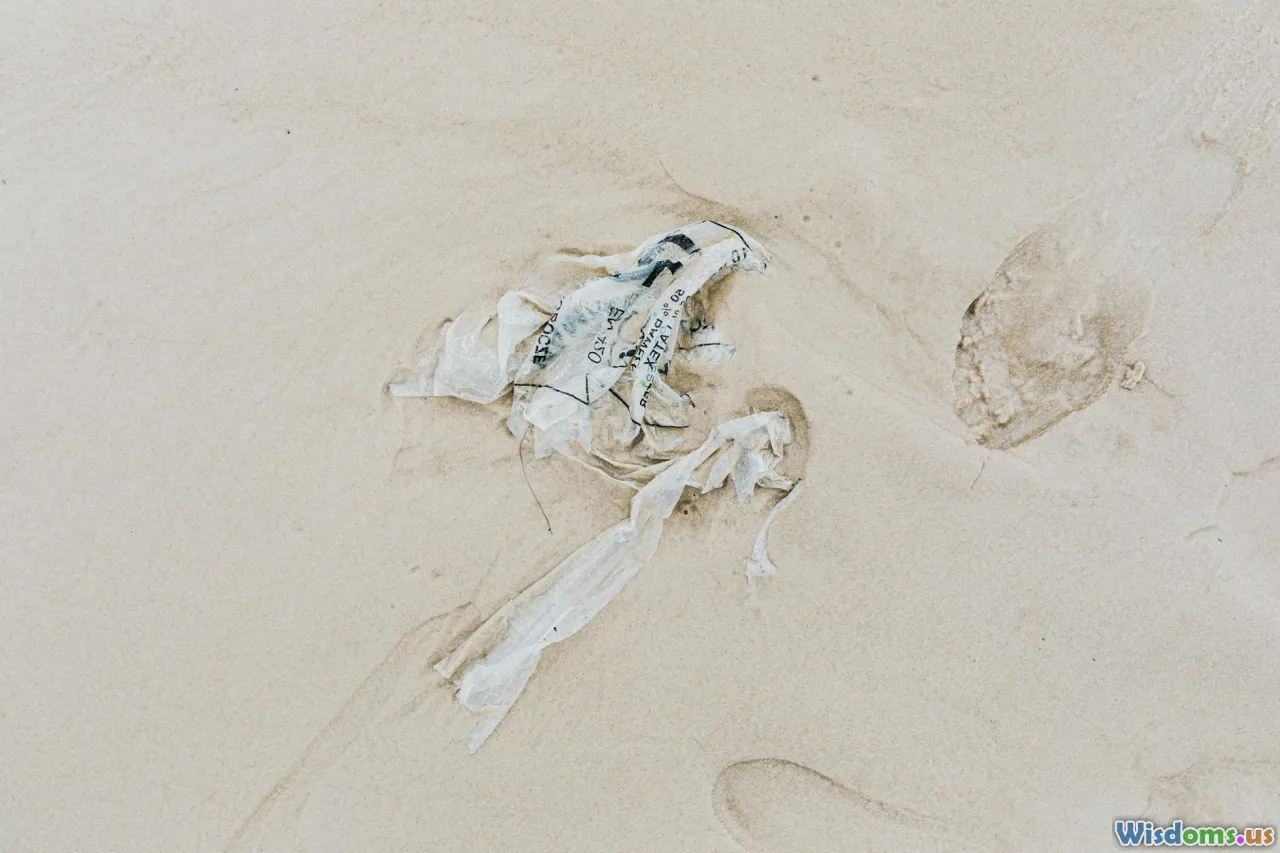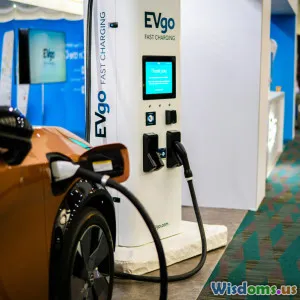
Ten Innovative Ocean Cleanup Projects Changing Our Coasts
7 min read Explore ten groundbreaking ocean cleanup projects transforming coastlines by tackling plastic pollution and restoring marine ecosystems. (0 Reviews)
Ten Innovative Ocean Cleanup Projects Changing Our Coasts
Introduction
Our oceans, covering over 70% of Earth's surface, are vital to life, climate regulation, and global biodiversity. Yet, marine pollution, particularly plastic waste, is choking these waters and threatening ecosystems. While the challenge is immense, a wave of innovative ocean cleanup projects is making tangible progress. These initiatives combine cutting-edge technology, scientific insight, and community engagement to restore coastal environments and reduce plastic pollution. In this article, we dive into ten pioneering projects that are rewriting the playbook on ocean and coastal cleanup — showcasing inspiring innovations and offering hope for cleaner shores.
1. The Ocean Cleanup Project: Passive Plastic Removal at Scale
Founded by inventor Boyan Slat, The Ocean Cleanup deploys massive floating barriers to passively catch plastic debris carried by ocean currents. Their flagship system operates in the Great Pacific Garbage Patch, collecting tons of plastic without harming marine life. By refining autonomous collection methods, they've reduced ocean plastics by measurable amounts and significantly increased public awareness.
Fact: In its first year, The Ocean Cleanup removed over 100 tons of plastic — roughly equivalent to 6 million plastic water bottles.
2. Seabin Project: Continuous Surface Trash Capture in Harbors
Seabin is a floating trash bin designed for marinas, docks, and ports, trapping debris, microplastics, and oil spills continuously. Easily deployed and maintained, Seabins act as microcosm cleanup stations, preventing pollution from entering larger ecosystems. Over 1,000 units operate worldwide, filtering 1.5 tons of debris per day collectively.
3. 4Ocean: Turning Waste into a Movement
4Ocean funds its cleanup initiatives by selling bracelets made from recycled materials. For every bracelet purchased, the company pledges to remove one pound of trash from oceans and coastlines. Their innovative funding model has enabled removal of over 20 million pounds of waste globally, blending commerce with conservation sustainably.
4. Project AWARE: Empowering Divers Against Ocean Trash
This global movement enlists scuba divers as frontline activists to remove marine debris during underwater excursions. The Divers Against Debris program trains volunteers to collect, identify, and report debris, contributing invaluable data to tackle pollution sources. Divers have removed over 4 million kilograms of trash while raising awareness.
5. Plastic Bank: Incentivizing Waste Collection in Coastal Communities
Plastic Bank innovatively addresses social and environmental issues at once. By paying locals in developing coastal regions for collecting ocean-bound plastic waste, Plastic Bank creates recycled material supply chains and supportive economies. This approach both cleans oceans and alleviates poverty.
6. Ghost Gear Initiative: Removing Lost Fishing Equipment
Abandoned fishing nets, or 'ghost gear,' cause tremendous harm by entangling marine animals and damaging reefs. The Global Ghost Gear Initiative (GGGI) coordinates cleanup operations and promotes sustainable fisheries practices to prevent gear loss. It collaborates with fishers, governments, and scientists for systemic change.
7. Eco Wave Power: Harnessing Waves for Cleanup
This Greek company designs wave-energy devices that simultaneously harness power and help remove floating debris. Integrating energy production with environmental cleanup creates a multipurpose coastal technology that maximizes efficiency and sustainability.
8. Bionic Yarn & Parley for the Oceans: Transforming Waste into Textiles
This partnership recycles ocean plastic into high-performance yarns used in fashion and accessories. Collaborating with global brands, they drive consumer awareness about marine pollution while funding plastic recovery efforts along coastlines worldwide.
9. Ocean Conservancy’s International Coastal Cleanup
Since 1986, this annual global event mobilizes millions of volunteers in over 100 countries to collect trash from beaches and waterways. Data gathered guides policy and innovation. In 2023 alone, 750,000 volunteers removed over 20 million pounds of trash, proving community action's profound impact.
10. Marine Debris Tracker: Data-driven Cleanup
Developed by NOAA, this smartphone app empowers citizens to record and map ocean litter, creating crowdsourced datasets critical for understanding and addressing marine debris. Data insights enable targeted cleanup and policy advocacy fostering efficient interventions.
Conclusion
The battle against ocean pollution demands creativity, collaboration, and commitment — qualities these ten innovative projects embody. Combining technology, business savvy, citizen science, and community engagement, they transform the daunting problem of marine debris into actionable solutions. Collectively, they are restoring the majesty of coastlines and inspiring global citizens to become stewards of the seas.
To bring meaningful change, we all have a role: supporting innovation, reducing plastic consumption, advocating policy change, and participating in local cleanups. The tide is turning, thanks to these trailblazing efforts and the growing movement to preserve ocean health for generations to come. Cleaner coasts may soon be our shared reality.
By staying informed and proactive, you contribute to this vital transformation. Our oceans depend on it.
Rate the Post
User Reviews
Popular Posts





















